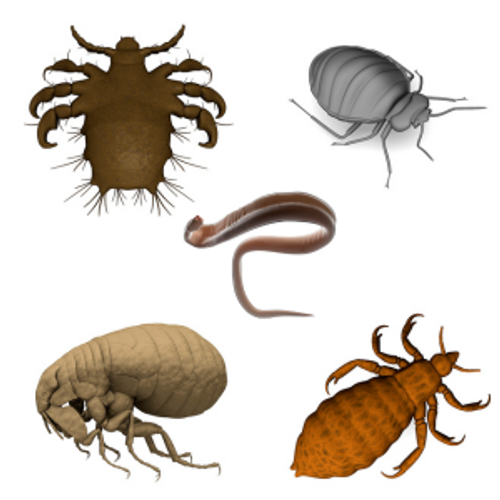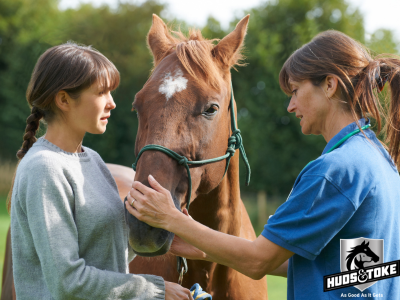Parasite Control in Dogs and Horses as Spring Arrives
Posted by Russell Gibbons on 6th Sep 2024
As the warmth of spring emerges in Australia, it brings not only a welcome change in weather but also an increase in parasite activity.
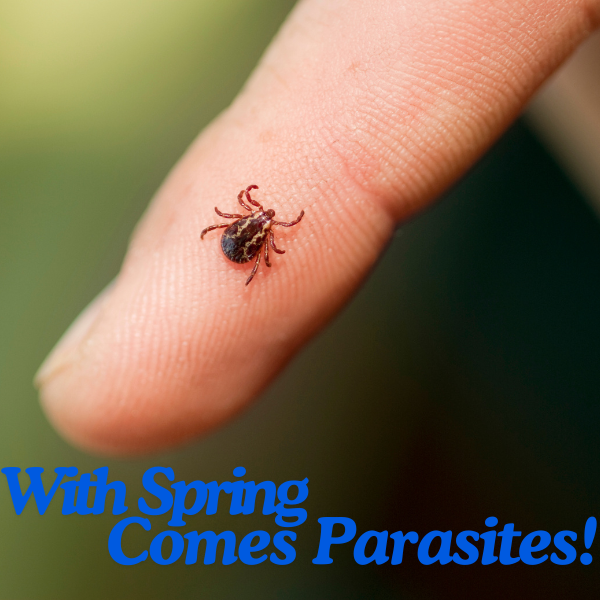
Both dogs and horses are at risk of various parasites, which can cause discomfort, illness, and even long-term health issues. By understanding the importance of regular parasite control, pet and horse owners can ensure the well-being of their animals as they thrive in the spring season.
Why Parasite Control is Essential in Spring
Spring marks the start of higher temperatures and increased moisture, creating the perfect breeding ground for parasites such as fleas, ticks, worms, and other harmful organisms. These pests can quickly infest animals, leading to a range of health problems.
- Increased parasite activity:
Warmer weather accelerates the life cycle of parasites, leading to a rise in their numbers.
- Greater exposure:
Dogs and horses spend more time outdoors, increasing their chances of encountering parasites in the environment.
- Potential health risks:
Parasites can cause serious health problems ranging from skin irritations and allergies to life-threatening diseases.
Common Parasites in Dogs During Spring
Dogs are vulnerable to a range of parasites, many of which become more prevalent during the spring season. Owners should be aware of the most common parasites and take preventive measures.
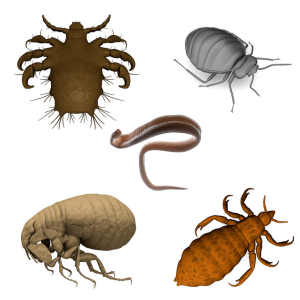
- Fleas:
These tiny blood-sucking parasites thrive in warm, moist conditions and can cause skin irritations, allergic reactions, and even anaemia in severe cases.
- Ticks:
Spring is a peak season for ticks, which can transmit diseases such as Lyme disease and ehrlichiosis.
- Intestinal worms:
Roundworms, hookworms, and tapeworms can be ingested from contaminated environments and can cause digestive issues, weight loss, and lethargy.
- Heartworm:
Transmitted by mosquitoes, heartworm is a serious condition that affects the heart and lungs, leading to severe complications if left untreated.
How to Protect Dogs from Parasites in Spring
- Regular flea and tick prevention:
Use veterinarian-approved flea and tick treatments such as topical solutions, oral medications, or flea collars.
- Routine deworming:
Administer deworming medications to prevent intestinal worms and heartworms, especially during peak parasite seasons.
- Check for ticks:
After walks or outdoor activities, inspect your dog’s skin and coat for ticks, paying attention to areas like the ears, underarms, and between toes.
- Maintain a clean environment:
Keep your yard clean by regularly mowing the lawn and removing debris to minimize flea and tick habitats.
Common Parasites in Horses During Spring
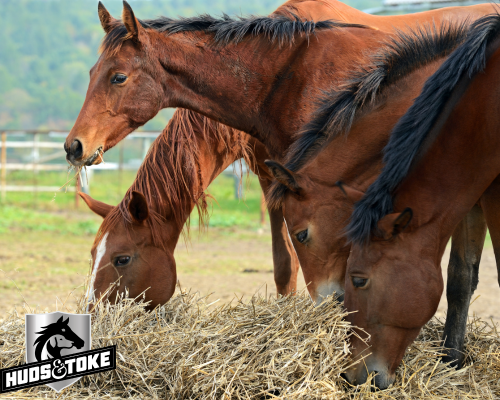
Horses, too, are highly susceptible to parasites as the spring season arrives. These parasites can affect their overall health and performance, making regular parasite control an essential part of spring care.
- Strongyles (redworms) or Gastrointestinal Nematodes:
These are one of the most common internal parasites in horses and can cause colic, diarrhoea, and weight loss.
- Bots:
Botflies lay their eggs on a horse’s coat, which are ingested, leading to gastric irritation and colic, as well as Ulcers and lesions in the stomach lining.
- Tapeworms:
These worms can cause digestive disturbances, and in severe cases, intestinal blockages.
- Pinworms:
Pinworms cause irritation around the horse’s tail area, leading to excessive scratching and discomfort.
How to Protect Horses from Parasites in Spring
- Implement a deworming schedule:
Work with your veterinarian to establish a strategic deworming plan based on faecal egg counts and local parasite risks.
- Pasture management:
Rotate pastures and avoid overgrazing to reduce the build-up of parasite larvae in grazing areas.
- Regular grooming:
Frequent grooming helps detect botfly eggs early, which can be manually removed to prevent ingestion.
- Keep stables clean:
Remove manure regularly and keep feed and water sources clean to minimize parasite exposure.
The Role of Dog Treats, & Horse Treats, in Parasite Control
Pet Treats, including Dog Treats as well as Horse Treats, have an important role to play in your animals health and the management of Parasites.
Many parasite control measures are oral.
With this in mind, one needs to understand that Pet Treats can make the process of administering such treatments a whole lot easier.
With a wide range of both dog treats and horse training treats on the market, there are a number which are really suited to assisting with such oral administration of medicines.
This is because they mask the flavour as well as provide for a reward once the medicine has been swallowed.
To hide tablets look for soft products where you can easily push the treatment into the actual product so that your pooch, or pony, eats it all at once.
If administrating a liquid via a syringe, find super tasty and fast eating treats where you give it to them almost at the same time as when you squirt the liquid into the mouth ensuring that the taste is masked and your animal is more likely to keep swallowing because it loves the Pet Treat you just gave to them.
Obviously it helps if you have created a habit of giving treats so that your pet dog or horse knows exactly what is in your hot little hands and is looking forward to the burst of flavour.
So Pet Treats are important on two levels.
Firstly, disguising the actual treatment totally.
Secondly, creating an expectation, or reward, once it does swallow the treatment. Thus making it easy to administer as well as ensuring you are protecting your favourite fur family members from the threats of parasites and bugs as the weather warms up.
The Role of Veterinary Support in Parasite Control
Veterinary support plays a crucial role in effective parasite control for both dogs and horses. Regular check-ups ensure that animals receive appropriate treatments and vaccinations tailored to their specific needs.
Customized parasite prevention plans:
Veterinarians can design tailored parasite prevention plans that consider the animal’s age, health status, and environmental factors.
Monitoring parasite resistance:
Some parasites are developing resistance to certain treatments. Your vet can recommend the most effective and up-to-date medications.
Health checks:
Routine veterinary visits allow for early detection of parasitic infections, preventing more serious complications.
Spring is a season of renewal and activity, but it also brings increased risks of parasites for dogs and horses in Australia. By staying proactive with parasite prevention through regular treatments, environmental management, and veterinary care, pet and horse owners can ensure their animals remain healthy and comfortable throughout the season. Don’t wait until symptoms appear—implement a comprehensive parasite control plan today to keep your animals safe and thriving.
We hope this helps give you some ideas regarding keeping your pets and ponies healthy as the weather warms up.
As always, the Huds and Toke team are grateful for your support and appreciate the time you take dealing with us.
All the best from the team at Huds and Toke.


